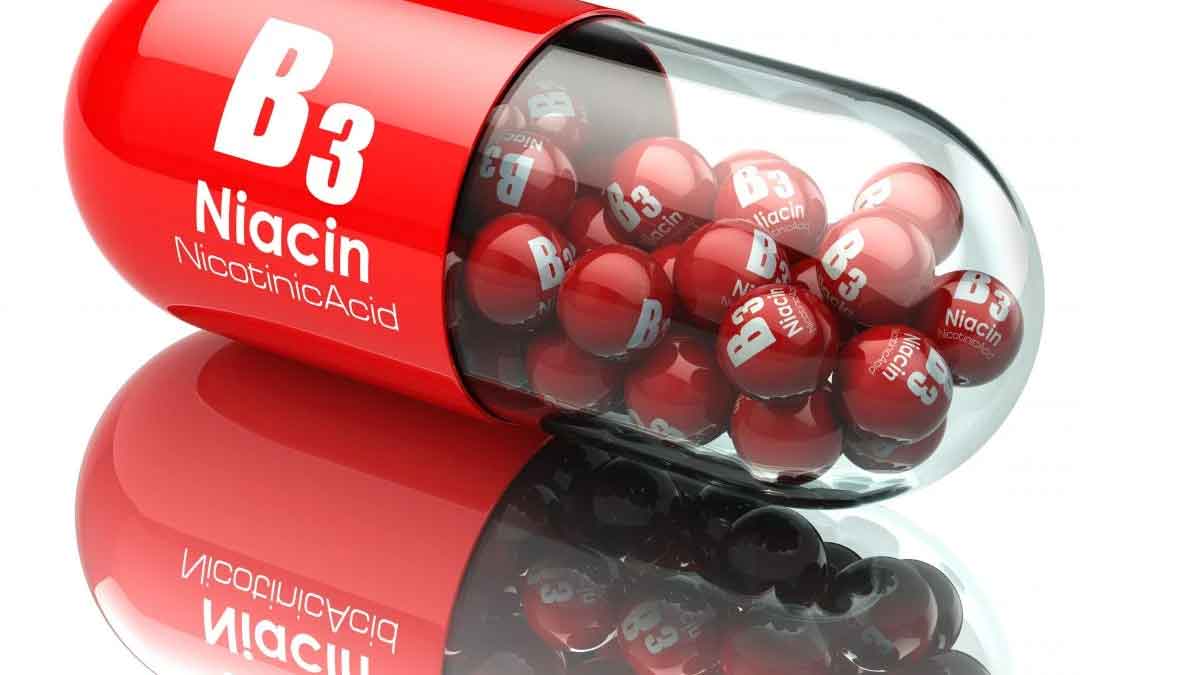- Home
- Billionaires
- Investing Newsletters
- 193CC 1000
- Article Layout 2
- Article Layout 3
- Article Layout 4
- Article Layout 5
- Article Layout 6
- Article Layout 7
- Article Layout 8
- Article Layout 9
- Article Layout 10
- Article Layout 11
- Article Layout 12
- Article Layout 13
- Article Layout 14
- Article Sidebar
- Post Format
- pages
- Archive Layouts
- Post Gallery
- Post Video Background
- Post Review
- Sponsored Post
- Leadership
- Business
- Money
- Small Business
- Innovation
- Shop
Recent Posts
Niacin Linked to Higher Heart Disease Risk, Study Finds

A recent study has raised concerns about the potential link between niacin, a common vitamin, and an increased risk of heart disease. While complete elimination of niacin from the diet is not deemed necessary, researchers suggest that more regulation may be needed to manage its consumption.
The study, published in Nature Medicine, suggests that high levels of niacin can cause inflammation and damage to blood vessels, thereby increasing the risk of heart disease. The researchers examined two study populations—one group comprising approximately 1,200 patients being evaluated for heart disease, and another group of over 3,000 individuals with or suspected of having heart disease. The findings indicated that high levels of 4PY, a byproduct of niacin, were associated with a higher risk of heart attack, stroke, and other adverse cardiac events.
Interestingly, one in four participants in the study consumed excessive amounts of niacin, leading to high levels of 4PY. Additionally, when mice were injected with 4PY, they exhibited increased inflammation in their blood vessels.
Niacin, also known as vitamin B3, is commonly found in popular multivitamins and various foods such as beef, pork, fish, poultry, flour, bananas, cereals, nuts, seeds, and bread. In the past, niacin was widely used to treat high cholesterol. However, the Harvard T. H. Chan School of Public Health suggests that because niacin is already prevalent in Western diets, most Americans obtain sufficient niacin from their food, rendering supplements unnecessary.
Despite these findings, it is not recommended to completely eliminate niacin from one’s diet. Stanley Hazen, the senior author of the study and chair of cardiovascular and metabolic sciences at the Cleveland Clinic’s Lerner Research Institute, emphasizes that a discussion on whether continued fortification of flour and cereal with niacin in the U.S. is warranted is crucial.
Historically, niacin deficiency was linked to a deadly form of malnutrition called pellagra, prompting its inclusion in foods like flour and cereals. However, recent studies have shown that niacin may not offer the expected benefits, particularly in patients already taking cholesterol-lowering statins. While niacin can lower LDL cholesterol, its clinical benefits have been less significant than anticipated, leading to concerns about its adverse effects.
Niacin is a water-soluble vitamin, meaning the body does not store it. High levels of niacin can lead to various side effects, including headaches, diarrhea, gout, dizziness, blurred vision, diabetes, rapid heart rate, upset stomach, itching, liver damage, and flushing of the skin. Serious side effects are more likely to occur when niacin intake ranges between 2,000 to 6,000 milligrams per day.
In conclusion, while niacin plays a crucial role in the diet, excessive consumption may pose risks to heart health. Further research and regulatory measures may be necessary to better understand and manage the potential risks associated with niacin intake.
Recent Posts
Categories
- 193 Countries Consortium Partner1
- 193cc Digital Assets2
- 5G1
- Aerospace & Defense48
- AI37
- Arts3
- Banking & Insurance11
- Big Data3
- Billionaires1,261
- Boats & Planes1
- Business332
- Careers13
- Cars & Bikes79
- CEO Network1
- CFO Network17
- CHRO Network1
- CIO Network1
- Cloud10
- CMO Network18
- Commercial Real Estate7
- Consultant1
- Consumer Tech194
- CxO1
- Cybersecurity73
- Dining1
- Diversity, Equity & Inclusion4
- Education7
- Energy8
- Enterprise Tech29
- Events11
- Fintech1
- Food & Drink2
- Franchises1
- Freelance1
- Future Of Work2
- Games149
- GIG1
- Healthcare79
- Hollywood & Entertainment203
- Houses1
- India’s 1000 Richest1
- Innovation46
- Investing2
- Investing Newsletters4
- Leadership65
- Lifestyle11
- Manufacturing1
- Markets20
- Media327
- Mobile phone1
- Money13
- Personal Finance2
- Policy569
- Real Estate1
- Research6
- Retail1
- Retirement1
- Small Business1
- SportsMoney42
- Style & Beauty1
- Success Income1
- Taxes2
- Travel10
- Uncategorized13
- Vices1
- Watches & Jewelry2
- world's billionaires1,230
- Worlds Richest Self-Made Women2
Related Articles
Valheim: The Indie Phenomenon That Captured the Hearts of Gamers Worldwide
Since the early access release of Valheim, an indie Viking survival game...
By Worlds GamesJanuary 5, 2025Geomagnetic Storm to Brighten Northern Lights in 18 States
Tonight, the northernmost states are expected to witness a spectacular display of...
By 193cc Agency CouncilDecember 31, 2024Record-Breaking Northern Lights to Continue Into 2025
The year 2024 witnessed a remarkable peak in Northern Lights activity, with...
By 193cc Agency CouncilDecember 31, 2024NASA’s Parker Solar Probe Survives Historic Sun Encounter
NASA’s Parker Solar Probe has achieved a historic milestone, surviving its close...
By 193cc Agency CouncilDecember 27, 2024














Leave a comment